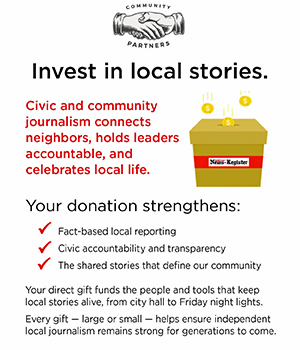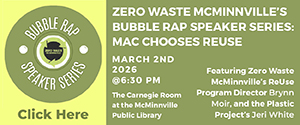Barrett Rainey: A question for our times: We can, but should we?
While experts join us in fretting over the computerized exposure of hundreds of millions of our personal files — on Facebook and elsewhere — I have more fearful questions.
How much of all our other information has been shared by other data collecting sources we know nothing about?
By whom? For whom? And for what purpose?
Our electronic world has grown up amazingly fast in the long arc of history. Suddenly, it was here.
After getting over the wonder and discovering what it could accomplish, we jumped in. And it became an integral part of our lives.
“How did we ever get along without this?” we gushed. “Look what we can do! Look at the possibilities!”
Yep, all true. But, as it seems with nearly all leaps forward in our technology-driven world, we skipped a couple of steps as we dove headlong into it. We dropped the old ways and went straight to the new.
The two steps we really didn’t pay sufficient attention to would be these: What is the downside? And just because we can, should we?
Human history is filled with examples of how our intellectual and technological accomplishments have been put to uses we never dreamed of, and sometimes turned against us along the way.
Someone out there is always ready to turn a new invention to maliciously unintended purposes. From the discovery of fire to our headlong rush into the information world, we’ve often suffered at the hands of the unscrupulous.
Should we always, as a matter of course, do it just because we can?
Probably the most glaring example lies with the prolonging of life. Because we can, should we? And should we continue doing it indefinitely?
We have the technology to keep a human heart beating forever. But is that the right thing to do if, by any other measure, the body is dead? Are the unrealistic hopes of family more important than quality of life of the permanently comatose?
Esoteric? Yes. Happen every day anyway? Yes.
You can pile up a stack of ethicists on either side of the issue, so the basic question “should we” goes unanswered. We just do.
There are many such instances in our everyday lives.
Digital data mining may seem far-removed from issues of life and death. But is it?
We’ve seen it put to use in criminal abuses, threats to life, terrorist acts, financial manipulations, election interference and the like. It has been used to spread fear by racists, demagogues and authoritarians, all as an unintended consequence of internet development.
I’m certainly not proposing we stop all use or avoid all contact with the amazing fruit of our technology.
Far from it. The dazzling array of things we can do to better our world through its use is tremendously important.
But we’re further ahead in achieving sweeping new advances that in safeguarding ourselves from their malicious misapplication. For better or worse, we’ve got this life-changing, world-changing force pushing us faster than we can get realistic safeguards or protections in place.
As in the prolonging of life issue, we’re further ahead on the technical side than the ethical side. We’re hurtling forward in a digital dream world without sufficient rules or proper constraints to protect ourselves.
Now we are beginning to see internet abuse threatening to taint our national elections. We have the technology to cast and count votes, but apparently insufficient electronic safeguards to always assure a valid outcome — at least one everyone will accept.
We live in a world where the words “Caveat emptor!” — “Let the buyer beware!” — have never rung truer.
Given the proven personal exposure of an entire population to forces beyond its control, maybe that should read, “CAVEAT EMPTOR!!!”












Comments